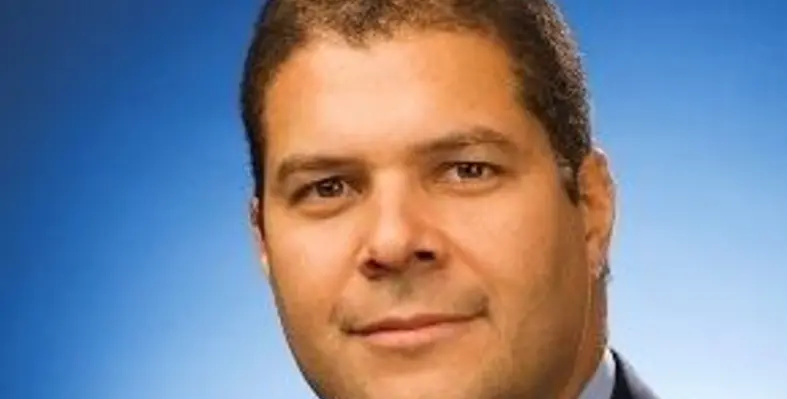Page 2 of 2
ATR: How big are you within the telecoms industry?
Doddy: Investments into the telecommunications sector represent approximately a quarter of our latest US$613 million ECP Africa Fund III portfolio.
ECP's primary telecommunications investments are in IHS and Wananchi. As one of the leading independent tower companies providing telecommunications infrastructure across Africa, IHS has close to a 50 per cent market share in Nigeria and 15 per cent across all of Africa.
The company currently has a footprint in Nigeria, Côte d'Ivoire, Cameroon, Ghana and South Sudan, and counts blue chip mobile network operators including MTN, Airtel and Etisalat among its clients. ECP invested more than US$60 million in IHS.
Since September 2009, we have invested more than US$50 million into Wananchi Group Holdings, a leading East African media and telecommunications company specialising in cable television and high-speed Internet services in Kenya and Tanzania. The company has attracted investment from other international investors including Liberty Global in May 2011.
ATR: Why are you continuing to invest in telecoms considering the current rate of cell phone penetration?
Doddy: Africa has more than one billion inhabitants and is the world's fastest-growing region in terms of cellular connections. Even so, only 600 million Africans are currently voice connected via mobile phones. This represents huge continued growth potential.
Additionally, with a number of providers beginning to offer low-to-medium range smartphone handsets to African consumers, there is the added significant growth expectation posed by the future of mobile data services.
Attracting more customers, especially in less urban areas, will require a substantial increase in the number of towers in new areas, while the provision of data requires a much denser tower network in the cities. By way of comparison, Africa has about as many people as India and is more than nine times larger, but has just 170,000 towers versus about 350,000 towers in India.
ATR: Do you think telecoms is the industry of the future?
Doddy: I think telecoms – including services such as data and money transfer and infrastructure connected to that sector – will remain a strong growth market and therefore a prime target for ECP over the next decade.
In addition, related industries such as pay television and other media businesses are at the low levels of penetration that cell phones were six to eight years ago and are poised for very strong growth.
ATR: How widespread is private equity in Africa?
Doddy: Investor interest in Africa has significantly increased since 2000. Fundraising figures from the Emerging Market Private Equity Association (EMPEA) indicate that US$4.3 billion was raised for investment into sub-Saharan Africa in the period from 2010 to the end of 2012.
Over the last decade, the continuing spread of democracy and increased prominence of the private sector has helped foster broad economic growth, which has lifted more than 100 million people into the consuming class. This has increased the number of countries and industries that are of interest to ECP and our investors.
We continue to see a marked uptick in investor enquiries looking to benefit from a number of key secular themes and trends that are expected to underpin continued positive GDP growth across the continent. Foremost among these are rapid urbanisation and the expanding middle class, as well as a booming demand for natural resources.
We are also starting to see Africa-focussed fund of funds such as South Suez entering the market, as well as emerging markets-focussed funds of funds starting to include allocations to Africa, which they often did not just a few years ago.
ECP has also been able to attach increasing amounts of investment from Africa-based LPs and we expect this to continue as their assets grow.
ATR: What difficulties do you face in pitching the Africa-as-a-market story?
Doddy: The one major challenge in the African private equity space lies in translating the increasing interest in the African growth story into actual investments, given that many LPs have never invested in the continent before.
We continue to promote Africa's success stories and work to dispel the myths sometimes associated with investment here.
The trend is a positive one and the latest statistics from the EMPEA indicate that fundraising figures for sub-Saharan Africa were up in 2012 from 2011 standing at US$1.4 billion at year end.
ATR: Have pension funds been brought into your pitch?
Doddy: Yes – our worldwide investor base is diverse and broad-ranging and includes Development Finance Institutions (DFIs), pension funds, financial institutions, funds of funds and Sovereign Wealth Funds (SWFs) among other investors.
ATR: What are the most recent deals you have been involved with and can you tell us about your recent award success?
Doddy: We announced in January that ECP's portfolio company, IHS, was awarded the title of 'Middle East and Africa Deal of the Year' at the TelecomFinance Awards. The award was given for IHS's deal with MTN Group Limited in October 2012, which saw IHS acquire up to 931 mobile network towers from MTN Côte d'Ivoire and 827 towers from MTN Cameroon.
In a round led by ECP and Wendel Investissement, IHS has secured more than US$216 million in equity commitments from existing as well as new international private equity investors to fund the acquisition and continue its strong growth. IHS also raised a US$202 million debt facility from Ecobank for Côte d'Ivoire and Cameroon.
Barnabas Thondhlana
READ MORE...IHS wins Africa Deal of the Year at TelecomFinance awards (external site)














